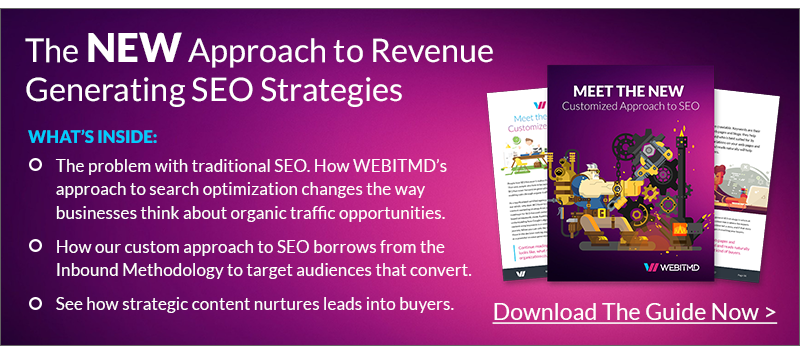SEO is constantly changing while enterprise companies often struggle to keep up. Approximately 1.2 trillion searches are conducted using Google each year. That’s 3.5 billion searches each day, which translates to an incredible amount of people that could be reaching a website from something as simple as a search.This potential, however, is wasted by an even large amount of companies; they’re unable to harness the incredible potential that Google offers.There are multiple reasons that companies are unable to realize their potential when it comes to SEO. By acknowledging these deficits and employing strategies to strengthen SEO, it may be possible for your enterprise company to direct anywhere from thousands to billions of people to your website. Working with one of the best SEO companies will help your corporation reach its digital audience. In the meantime, let’s take a look at five of the most dire challenges that enterprises face when it comes to SEO.
One: Starting with a Solid Keyword Foundation
Search engines have become more sophisticated. They are capable of matching mistyped and vague queries to something specific using a number of technologies.While this is great for search engine users, it can spell disaster for enterprises stuck in the “old” style of exact-match keyword thinking. Rather than one or two simple targets, enterprises need to completely rethink their keyword focuses to take advantage of these new technologies. To better understand this, realize that roughly 70 percent of Google’s searches are conducted using synonyms of keywords. Exact matches represent less than 30 percent of these searches.The inherent challenge with building a strong keyword strategy resides with utilizing synonyms across multiple pieces of virtual real estate. By incorporating a strong strategy that utilizes multiple words and phrases, companies can make it easier for search engines to associate related words and phrases with web pages. This leads to more visitors, which in turn allows a website to become more successful.
Two: Content Marketing
Great content is the basis for any SEO. Without content that soars to meet the needs of users, it is impossible for search engines to bring visitors to an enterprise’s website. Content marketing requires three things from companies:
- Adequate Depth – This means content should be longer (600 words or more for a blog, 1000 words or more for a primary web page) and adequately address a topic.
- Multiple Facets – Just one look at an idea or topic is seldom enough. Multiple facets need to be explored to allow a website to become useful to visitors while acting as an authority website.
- References to Past Content – Interweaving links to previous pieces of content builds authority while driving traffic.
The problem is that enterprise websites generally manage to only take one of these points into consideration. One piece of excellent content isn’t enough to perform against trillions of competing websites. It will often be outperformed by a website capable of creating mundane but adequate content on a regular basis. A good continuous flow of content also requires one to be well-versed in Google’s algorithms. This is why hiring a good SEO agency is beneficial for enterprise level businesses; it is vital to understand Google RankBrain and other algorithm elements that dictate how content resonates in search.
Three: Crafting a Strong User Experience (UX)
In addition to excellent content and a strong keyword foundation, a website must provide an exceptional user experience (UX) to ensure that it performs well in search engines. Factors like load times, cross-platform compatibility and even mobile accessibility are factors that can greatly influence how well a site ranks in search engines. While it is possible to rank without focusing on these features, websites tend to be limited by what type of UX they provide. Consider mobile traffic when it comes to SEO and enterprise websites. Roughly 80 percent of Internet users own a smartphone. Google tends to deliver mobile-accessible results to smartphone users, which in turn means that a lion’s share of traffic can be derived from mobile traffic alone.
Four: Focusing on Local SEO Results
Local results are similar to mobile results, yet they affect users on all devices. The dividing factor with these results concerns the location of the individual searching for something. When it comes to enterprises, local SEO tends to be one of the largest challenges. This is because enterprises either have one central location, which in turn may make local results ineffective, or they have countless locations. In the latter case, each location requires a varying amount of local SEO to outperform the competition. Doing so is encouraged, as it can substantially boost traffic while benefiting a website’s overall performance in search engines.
Five: Maintaining Positive Public Relations
The last great hurdle in SEO is one that affects digital businesses as a whole: public relations. The reason this affects SEO concerns the intrinsic way public relations are linked to the way search engines function. Enterprises can use something as minor as a post on Facebook is to generate positive search signals for their websites, which in turn helps with ranking. The reason enterprises struggle with this concerns the way most large businesses struggle with public relations: people expect a personal touch due to the availability of social media.
One thing that you should keep in mind is that public relations do not have to be difficult, nor should they be. Devoting the time and effort of one or two clever employees can be enough to maintain beneficial public relations. Even the costs of hiring a manager to do this is worth every penny, both in terms of SEO and business as a whole.
Great SEO Means Great Business
While the challenges associated with SEO for enterprises are difficult to overcome, the one thing each challenge has in common is that they align with the challenges required to act as a strong business. Fulfilling these tasks tends to help businesses, especially enterprise companies, strengthen their overall business goals while increasing their return on any digital assets. Investing in SEO is like investing in every aspect of your business.








(1).jpg)

.jpg)




![5 Reports to Elevate Your HubSpot Sales Dashboard [+ Examples]](https://2363531.fs1.hubspotusercontent-na1.net/hub/2363531/hubfs/Imported_Blog_Media/6-winning-examples-of-a-hubspot-sales-dashboard-2.png?width=767&name=6-winning-examples-of-a-hubspot-sales-dashboard-2.png)

